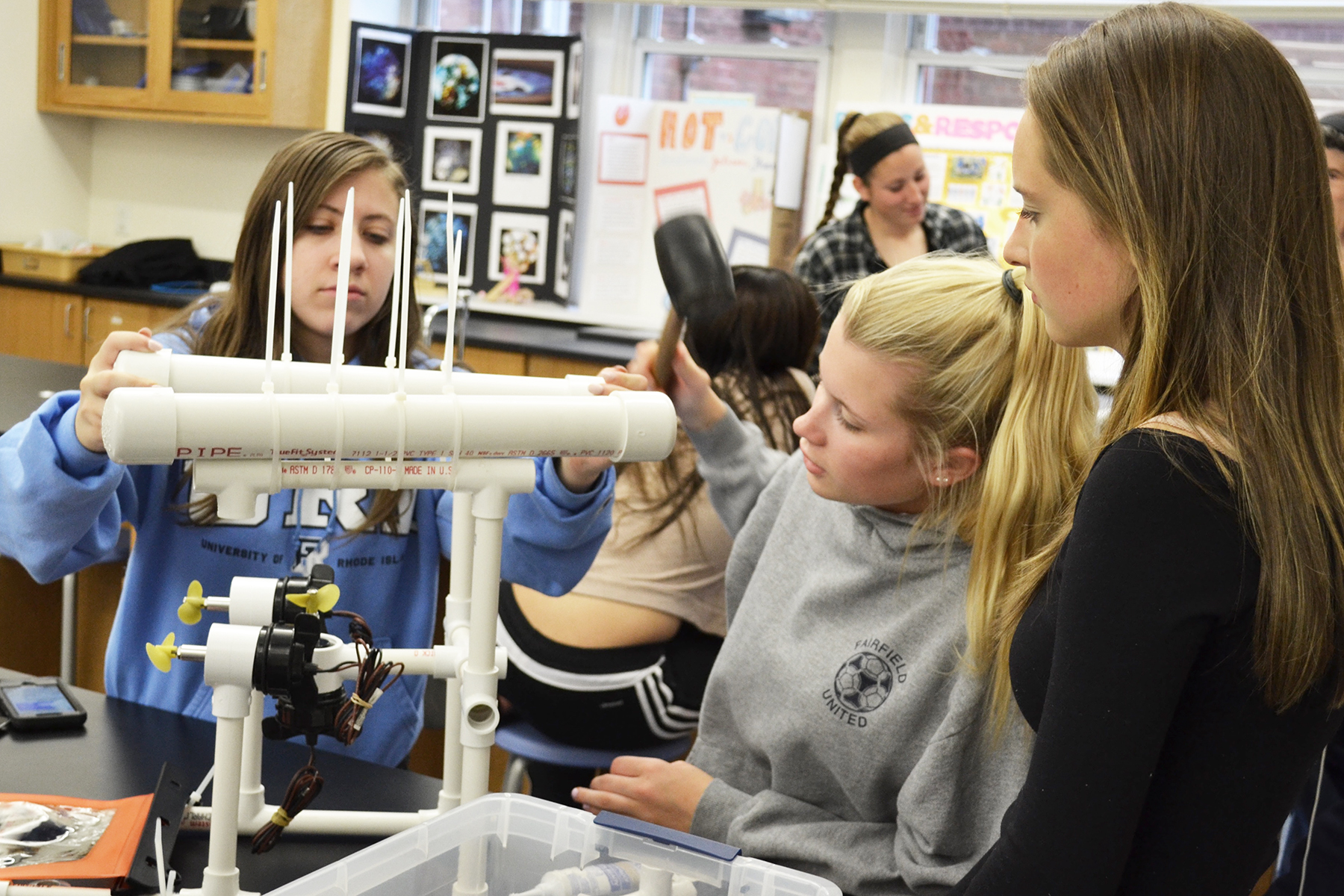
In an effort to introduce more STEAM projects into the existing science curriculum at Lauralton Hall, marine biology students participated in a pilot ROV [remotely operated vehicles] build-project following the Spring Break. Students learned how ROVs contribute to our understanding of the marine environment. They constructed ROVs out of PVC pipes to participate in the monitoring of blue mussel beds with the CT Audubon Coastal Center. The purpose of this collaboration was for the student ROVs to collect water and mussel samples for chemical analysis.
Beginning in the early 2000’s, blue mussels began settling along the near coastal region off Milford Point Road, Milford, CT forming dense beds. Audubon naturalists have been concerned in recent years that changing shoreline conditions caused by storms such as Superstorm Sandy may have altered suitable habitat conditions for the mussels. There was also a concern that water chemistry conditions could be impacting the population size and density of the mussel beds. Mussels are filter feeders and so any contaminants (such as bacteria and heavy metals) can build up in the mussel tissue. They are also a foundation species improving water conditions for other marine species (through their functions as “filters”) and providing food for a host of species such as predatory snails, crabs, and shorebirds and so, play a crucial part in the marine ecosystem.
While this is important information for CT Audubon’s ongoing blue mussel bed monitoring program, the real lesson that students learned from the experience is that science is often messy and unpredictable and that perseverance and the willingness to learn from every attempt is key to success. Students will share the lessons learned about ROV construction with next year’s students in order to improve the ROVs and possibly have another successful launch in 2017.
CT FOX 61 captured the event on video, watch it here.